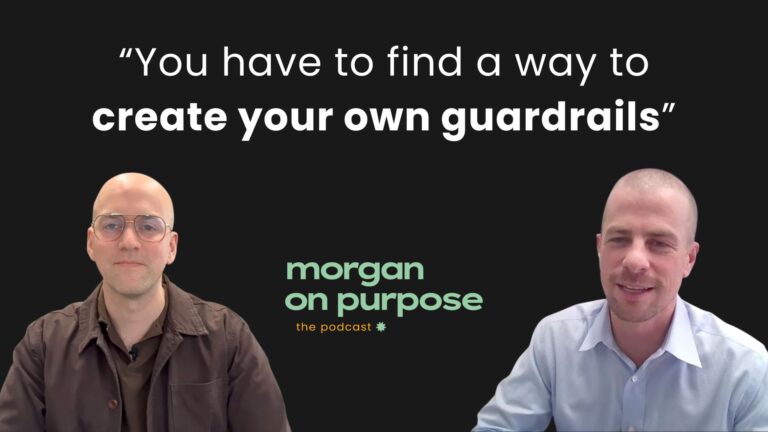Let’s start this off with some good news and some bad news. The bad news is: Biggie was right. More money does come with its own set of (often complex) problems that many people aren’t prepared for. The good news is: There are experts out there who can help you navigate the complexity, and, overall, having money tends to be better than not having it.
When you go a step further and add family dynamics to the mix, the complexity multiplies. Whether you’re the one leaving money to your heirs, or you’re set to inherit money from family, getting a handle on the red flags and potential pitfalls can help you skip straight to the part where you’ve “got the dough, got the flow.” Here are some of the most common:
Lack of financial knowledge
Unless you grew up with a lot of money, it’s likely you don’t know how to manage it. This lack of financial knowledge can create a disconnect between an inheritor and their new wealth. This can make it harder to enjoy your money, and it can lead to poor decisions. Taking time to educate yourself (or work with an advisor who can help you navigate the new influx of funds) can help you protect your money from bad choices and fraudsters.
Bad spending habits
We’ve all seen stories about people who come into new money only to blow it all on big purchases. But bad spending habits extend beyond splurges. Poor spending can also mean spending your wealth on things that don’t improve your life. That might be growing the money financially, but it could also mean buying experiences, supporting your loved ones, and so on. When we hear that inheritors feel “empty” despite the influx of cash, it’s usually because they haven’t put the money toward something meaningful.
Imposter syndrome
It’s common to feel guilty when you inherit money (versus earning it). Often, this comes from a lack of purpose. When you work to build wealth over time, you tend to assign meaning to the money as you grow it. Inheritors can feel like they’re defined by money and affluence that they didn’t earn and thus don’t “deserve.”
Pressure to make an impact
Money creates opportunity, but that opportunity can start to feel like a burden if we aren’t sure how to deliver. Inheritors often feel like they need to honor the source of the funds by doing the “right” thing with their inheritance.
The good news: These sticking points are all manageable. Here’s how you can start off on the right foot when you inherit a fortune:
Hire professionals
If you’re thinking “of course a financial advisor says that,” hear me out. I think you should hire an advisor, period, even if it’s not me. Large sums of wealth tend to carry complications—taxes, logistics, and so on. The sheer amount of decisions can make people overwhelmed right out of the gate. It’s also incredibly easy to unknowingly make mistakes that can cost you in the long run (and many of these missteps can’t be undone).
An advisor can also help you figure out if you need to bring in other professionals, like a tax accountant or an estate planning attorney. If you already have a team in place, an advisor can coordinate with them so that you can focus on the emotional and purpose-driven components of your inheritance rather than the details.
Spending the money to work with professionals now can help you maximize your inheritance for years to come.
If you’re averse to hiring an advisor, I suggest getting serious about your financial education. You might want to sign up for classes, do research around the assets you inherited, read the relevant laws in your state—you get the drift.
Assign meaning to your money
It’s important to remember: This money belongs to you, not the other way around. I want to make sure clients have a sense of identity, and purpose, that has nothing to do with money. That way, their wealth doesn’t define them. Even better, they have a framework in place for how to think about their new money and put it to work in a way that furthers their goals.
As you do this work, remember that your purpose and identity extend beyond financial decisions. If you value giving back, you can still do that via your time (volunteering) or advocacy; it doesn’t have to be about money just because you have an inheritance now.
Don’t isolate yourself
It can be hard to talk about money when the problem is you suddenly have too much of it. You might worry that your friends can’t relate and that discussing any problems you’re having managing an inheritance will drive a wedge in those relationships. While that may be true, it’s equally risky to isolate yourself during periods of upheaval. And yes, inheriting wealth qualifies as a period of upheaval, even if the overall tenor is positive. Consider working with a financial therapist or coach to help you figure out healthy ways to address any challenges that come with your new money and to prepare for the ways it may (or may not!) change your existing relationships.
Have a growth mindset
We often see family wealth dwindle over time because the second or third generation focuses more on enjoying wealth than preserving or growing it. In reality, it’s important to do both. Think of your new money as an opportunity—you can fund an entrepreneurial venture, become an angel investor, or actively invest in public markets.
Remember, money creates opportunity. When you get strategic about an inheritance, you can use it to further your goals in life and to help support your family (and their goals) for generations to come.
Family wealth generates a tremendous amount of positivity in society today. Many charities are supported by family endowments, wealthy individuals tend to fund private ventures and support entrepreneurs, and we frequently see established families invest heavily in their communities.
If you want help navigating a new inheritance and assigning purpose to your wealth, I may be able to help. Set up a call.


